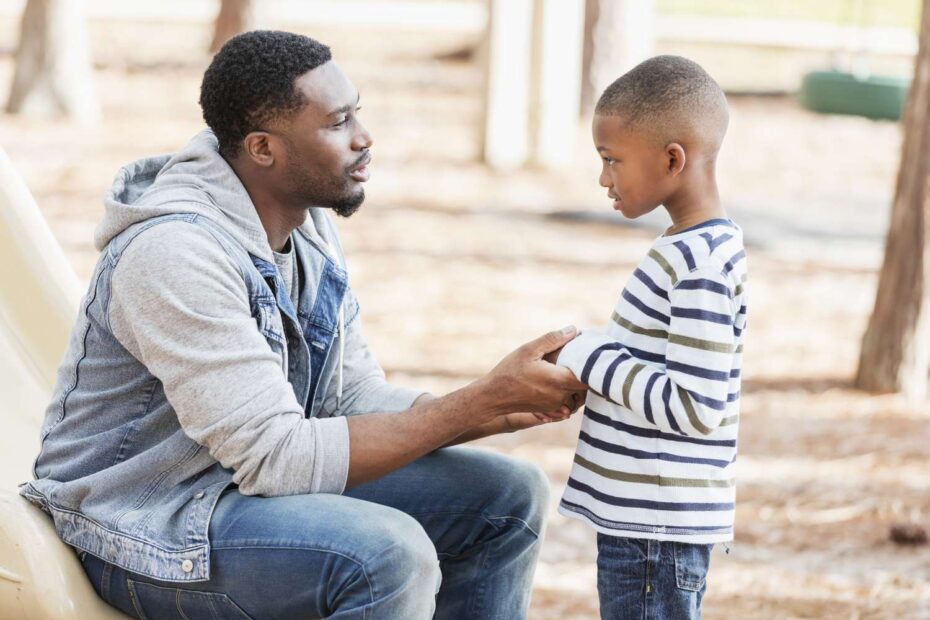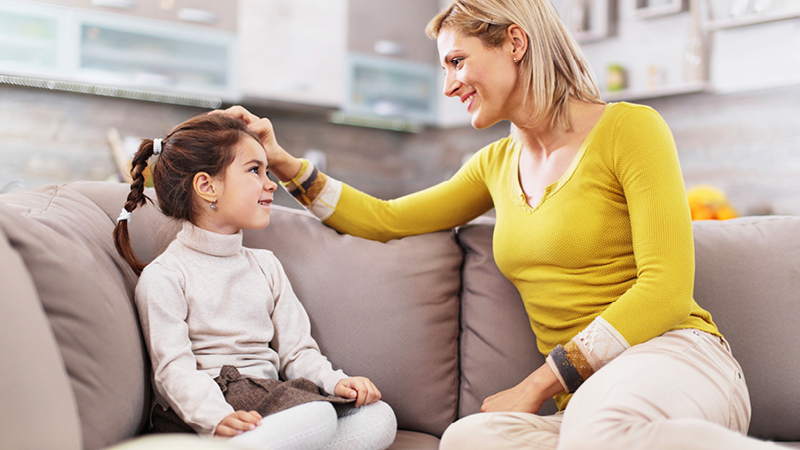LISTEN TO THE PODCAST VERSION
WATCH A 1-MINUTE SUMMARY VIDEO
I remember that nine-year-old Little League game like it was yesterday.
My Dad sat in the stands near where I was playing third base. Nothing special about that, parents always go to their kid’s games, right? Not mine, though, because that was his first. At the time, I didn’t think the closeness of our relationship mattered that much to me—until it did.
After the game, Dad was trying to compliment me when he said, “Steve, I didn’t know you could play baseball like that.” Even now, decades later, I can not only remember what I was thinking at that moment, I can feel it inside. It was: “Because you never come to my games!”
Connection and relationships matter in life, and we learn a lot about them when we are kids. Hopefully, we learn that from our parents.
When your kids are young, your primary role is to be their teacher—not their best friend, not their enabler, and not their dictator. You teach them by conveying knowledge and understanding and just as importantly by modeling the way and setting a positive example.
“Train up a child in the way he should go; even when he is old he will not depart from it.” (Proverbs 22:6)
Your role includes equipping your kids to form good social connections. This helps them build relationships, and they’ll be happier and more successful as well. They can enjoy being a kid and grow up to be healthy emotionally, mentally, spiritually, and personally as well as socially.
Building connection is not only about how your kids interact with others. It is built on their relationship with God and how they feel about themselves. With that foundation, you can help them form positive relationships by teaching them and modeling the way.
Below are 5 ways (each with 3 suggestions) you can help your kids develop in a healthy, happy way and form positive social connections …
What Every Kid Needs to Hear from Their Parents
1 – Help Them Form a Relationship with God
Kids form their views about God from their parents, and you’re teaching your kids about God all the time whether you know it or not. What do they learn from your relationship with him? Do you teach them what God is like and what he thinks of them? Your kids need to hear …
“God loves you” – “God loves you just as you are, and he is proud of you. You are a blessing and nothing can separate you from his love.”
“You have great value” – “You are designed special. You have talents that set you apart from everyone else. God did a good work in you.”
“You have a good future” – “God is always there for you. He has good plans for you, and there is meaning in what you will do in your life.”
2 – Help Them Be Comfortable with Themselves
Kids form connections more easily when they feel good about themselves, and parents can help. Explain to them that everyone has issues so your kids don’t feel different when they do. One of the best things you can teach them is to be comfortable in their own skin by saying …
“We love you and are proud of you” – Kids need to hear from their parents: “You are loved, you have value, and you have a good future.” But you need to communicate with more than words. Your attitude, boundaries, and actions should speak those messages into their hearts.
“It’s okay not to be okay sometimes” – Parents should say: “If something is bothering you, that’s normal, because we all have issues at times. There are steps you can take to feel better. Many people feel sad, anxious, or left out at times and still have a very happy life.”
“You’re never alone and we can help” – Kids also need to hear: “However you feel, there are many people who have felt the same way including us, and we have struggles too at times. But you can trust us that we will always be there, and we care about what is best for you.”
Three decades after that Little League game, my Dad passed away. I learned a lot by watching him over the years: doing your best at what you do, making an impact in the community, and communicating about a cause you believe in to make a difference. But also: work comes first, having friends is fine but not critical, and men don’t share their feelings. He taught all those things to me—without saying a word.
At his funeral, person after person kept saying similar things to me: “Your Father loved you a great deal,” “He talked about you all the time,” and “Your Dad was very proud of you.” The first few times I heard those comments, I wrote them off as people just being polite and saying what you’re supposed to say at a funeral. Until it finally hit me they were telling the truth. Which was nice in a way, but also deeply sad.
Because he never said those things to me.
What Every Kid Needs to BE Taught by Their Parents
3 – Model How to Have Good Relationships
Imagine saying to your kids: “I want you to watch me and do everything exactly like I do.” Does that sound frightening? It should, but that’s what’s going on. Your role is to set the best example you can, and your interactions and relationships will teach them about connection.
Be there for your kids – Give your kids evidence they can be secure in their relationship with you. Build trust as you build connection:
- Be available – Quality time comes from quantity time, so be with them as much as you can. Do fun things so they enjoy being with you.
- Be encouraging – Say more positive than negative things. Point out their good behavior while separating performance from identity.
- Be trustworthy – Ensure they know you will always support them. Be consistent and loving, even as you calmly enforce boundaries.
Model social connection – Be relational and interact with them in different situations. Have conversations on lots of topics. Listen deeply and try to see their world through their eyes and express empathy. Teach them how to interact socially by how you interact with them.
Communicate effectively – To be the best parent you can be, become the best person you can be. Practice your communication skills including identifying your blind spots (ask your kids if you don’t know.) Listen, ask questions, and be clear in how you communicate.
4 – Teach Them That Life Has Boundaries
Your role as a teacher includes equipping them to understand how life and relationships work. This means teaching them the skills to live effectively. Every kid is different and age matters, so develop the best ways to adapt the suggestions below to their personality and maturity.
Help them develop emotional intelligence – Your kid’s emotional intelligence is how well they recognize and manage their feelings and relate with others. Create a safe environment where it’s okay to share feelings. Model how to do that in a vulnerable and caring manner.
Equip them to deal with their emotions – Periodically, ask your kids how they’re doing with open questions (“how are you feeling?”) and more specific questions (“why are you angry?”) Listen without judgment, acknowledge their feelings, and show them some grace when they share with you. Be alert for emotions or experiences that may seem “traumatic” to them even if they don’t seem serious to you.
Help them learn to make good choices – Teach your kids how to make choices that lead to wellness—for them and others—emotionally, mentally, spiritually, personally, and socially. Set clear, consistent boundaries since this helps them learn, feel secure, and relate with others.
5 – Teach Them How to Connect with Others
Teach them techniques for how to interact with others, communicate, and form positive relationships. Understand that kids are simply small humans, which means they will naturally be somewhat self-absorbed and selfish, but you can help them move toward connection.
Equip them for social connection – When they’re young, model how to interact with others with kindness and respect. Teach them to play well with other kids, share, and enjoy doing so. Gently correct them when they mess up and discuss what they can do instead.
Teach them how to communicate – Model for them and teach them how to listen and ask questions of the other person. Help them practice showing interest in what someone is saying, responding, and talking politely as part of the natural give-and-take of conversation.
Expand their emotional intelligence – Get them to talk about how they feel around other people, both kids and adults. Help them learn to identify emotions so they can manage them. Help them focus on how others are feeling and teach them how to express empathy.
Proactive and effective parents influence their kids through setting a positive example and intentional, specific teaching.
Remember that how your kids build connection is affected by their relationship with God and how they feel about themselves. With that foundation in place, it is easier and more effective when you set the right example and teach them how to connect with others effectively.
There are critical things every kid needs to learn from their parents. Now that you know what many of them are, what steps will you take?
Next Right Steps: Pick the top 3 things you will work on with each of your kids, understanding there are differences between them.
Share this article on:

